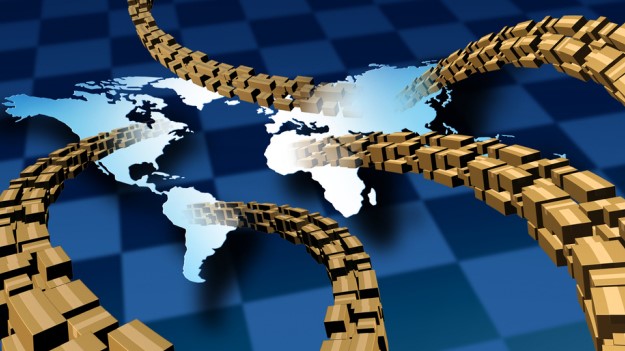 International trade and globalization ensure diversification and less dependency in the long term. (Image: lightsource/Shotshop.com)
International trade and globalization ensure diversification and less dependency in the long term. (Image: lightsource/Shotshop.com) In terms of economic policy, 2020 was marked by a revival of neo-mercantilism, for which the Coronavirus crisis served as the occasion. Since its inception, the European Union pursued protectionism externally and industrial policy interventionism internally, which was been reflected, for example, in the 750-billion-euro EU reconstruction fund. It is true that people preferred to speak of “economic sovereignty” rather than “protectionism,” but unfortunately this amounted to the same thing. The arguments put forward in this context are untenable.
If you rely on domestic manufacturers instead of Asian manufacturers, you replace one dependency with another ... You reduce dependency through diversification, and that is precisely what the much-maligned globalization makes possible.
Supply shortages of COVID-19-related medical products from China were the initial impetus for the mercantilist turn. In April, EU President Charles Michel declared, “It’s absurd for us to manufacture the machines that China then uses to produce the masks we so desperately need here.” His conclusion: “In the future, we must produce the central products that we need for health, but also for our industrial production, back in Europe.”
These words were followed by action. France used money from the EU reconstruction fund to subsidize companies that brought global supply chains back behind French national borders. Pre-production was thus shifted to France. Remarkably, the focus of all EU aid programs was not primarily on Coronavirus-related products.
Of course, this does not reduce dependence on individual countries. If you rely on domestic manufacturers instead of Asian manufacturers, you replace one dependency with another. It is of no use to manufacture relevant primary products in one’s own country if there is a lockdown there. Dependency is reduced through diversification, which is precisely what the much-maligned globalization makes possible. For this reason, international integration does not increase susceptibility to disruptions, as claimed. Incidentally, most shocks are country-specific, and it is precisely in such cases that foreign trade helps.
Moreover, building up domestic production capacity for a rare event such as a pandemic, which occurs only once in a generation, makes no sense at all. Sufficient stockpiling is far more effective.
It is also clear that everyone buys goods first where they are cheapest—as long as the quality is the same. If we buy products at much higher costs elsewhere or manufacture them ourselves, it costs us more. In the case of prescription drugs, whose prices are not determined by supply and demand, we should not be surprised by the rising costs of the healthcare system. In general, subsidies for non-profitable domestic companies cost the general public dearly, and they do not increase prosperity.
All that aside, dependence on China for COVID-19-related medical products is simply a myth. The German Council of Experts found that 81 percent of Coronavirus-related medical products are received by EU countries from at least 30 different countries. Germany’s pharmaceutical imports are 72 percent from EU countries, with only 0.8 percent from India and China.
If Austria, Germany, and Asian countries had retreated behind their national borders, their current prosperity would be unthinkable. These countries owe a considerable part of their prosperity to their integration into global supply networks. A policy of increased autarky gives away these foreign trade advantages, and with them prosperity.
This commentary also appeared in Börsen-Kurier, January 7, 2021, p. 3.
Translated from German by Thomas and Kira Howes.



